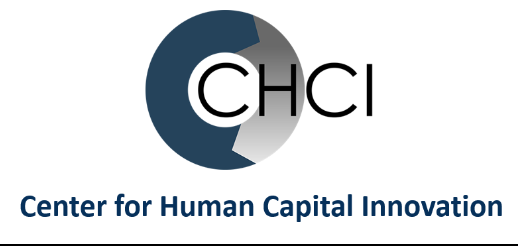
Unleashing Your Potential: Why a Growth Mindset Matters
Have you ever felt like some people are just naturally gifted? Or maybe you’ve caught yourself shying away from a challenge, worried about not being “good enough”? If so, you’re not alone. In this post, we’ll look at something incredibly powerful that can reshape how you approach your career and unlock your true potential: the growth mindset.
Growth mindset isn’t just another buzzword. The concept of fixed and growth mindsets, popularized by Stanford psychologist Carol S. Dweck, offers profound insights into why some individuals and teams thrive while others get stuck. Understanding these mindsets can be a game-changer for your personal development, your leadership style, and even your organizational culture.
The Tale of Two Mindsets: Fixed vs. Growth
At its core, the difference between growth and fixed mindset lies in our fundamental beliefs about our abilities and intelligence.
Imagine believing that talents and intelligence are largely fixed – each person is born with a certain amount, and that’s that. People with a fixed mindset are often concerned with proving themselves, afraid of looking incompetent since every outcome is a reflection of their innate abilities. They might avoid challenges to steer clear of potential failure, view effort as a sign of inadequacy (“If you have to work at something, you must not be good at it”), and feel threatened by the success of others. Criticism can feel like a personal attack, highlighting immutable limitations. In a professional context, this can lead to individuals sticking to their comfort zones, being resistant to new ideas, and feeling paralyzed by setbacks.
Now picture believing that your abilities can be developed and grown through dedication, hard work, and perseverance. Individuals with a growth mindset embrace challenges as opportunities to learn and grow. They understand that effort is essential for mastery and see setbacks as valuable learning experiences (“What can I improve for next time?”). They are inspired by the success of others, viewing it as a potential roadmap for their own development. Constructive criticism is welcomed as a tool for improvement. Professionally, this translates to willingness to take on new projects, resilience in the face of obstacles, and continuous pursuit of learning and development.
Why Your Mindset Matters in the Professional Arena
The mindset you adopt has a far-reaching impact on your professional journey. Let’s look at the impact of a growth mindset in the workplace, both at the individual and organizational level:
Effects of Mindset on Career Development: As technologies and entire industries change at a rate never seen before, staying stagnant means getting left behind. Instead of being afraid of not knowing something, a growth mindset sees an opportunity to acquire a new skill or gain deeper knowledge, which is crucial for adapting to new technologies, industry shifts, or even promotions within a career trajectory. Additionally, the path to professional success is rarely smooth. There will be challenges, setbacks, and moments of doubt. A growth mindset equips you with the resilience to bounce back and keep pushing forward. Think of the graduate student who, initially devastated by critical feedback on her thesis, shifted her mindset to see it as a learning opportunity, adopted the recommended changes, and ultimately got her paper accepted.
Shaping Your Leadership Style: The mindset of leaders has a direct impact on their teams and organizations. Fixed-mindset leaders may focus on showcasing their own brilliance, be threatened by talented subordinates, and create a culture of judgment and unhealthy competition. Growth-minded leaders, on the other hand, believe in the potential of their people, prioritize their development, and encourage a collaborative and empowering environment. Sara Blakely, founder of Spanx, exemplified a growth mindset by incorporating company-wide “Oops!” meetings where employes are encouraged to share their mistakes, removing the embarrassment and creating a learning opportunity. As Blakely says, “Your failures are your greatest asset to connect with another human being.”
Cultivating a Thriving Organizational Culture: What does it look like when the power of a growth mindset is embedded in the culture of an organization? A workplace where employees are encouraged to experiment and continuously strive for improvement, which are crucial for innovation, collaboration, and collective growth. Organizations that cultivate this mindset value learning and perseverance, not only innate talent. The new Microsoft, which moved from a culture of internal competition and fear to one of learning and support, is a great example of this in action, prioritizing tenacity and endurance over ready-made genius.
Nurturing Your Growth Mindset: Practical Steps
In the spirit of growth mindset, remember that your mindset isn’t fixed; it can be cultivated and changed. Here are some practical steps you can take to shift to a growth mindset:
- Become Aware of Your Fixed-Mindset Triggers: Pay attention to when you feel defensive. What situations or feedback bring out your fixed-mindset tendencies? You might even give your fixed-mindset “persona” a name to better recognize it.
- Utilize Growth-Oriented Language: Pay attention to the language you use with yourself and others. Instead of praising innate talent (“You’re so smart!”), focus on effort, strategies, and progress (“You put a lot of effort into that project”). In addition, change “I can’t do that.” To “I can’t do that yet.”
- Embrace Challenges as Growth Opportunities: Instead of shying away from difficult tasks, actively seek them out. Remember that stretching your abilities is how you grow.
- Value the Process Over the Outcome: Focus on the effort, strategies, and learning involved in a task, rather than solely on the end result. Recognize that hard work is a pathway to mastery, not a sign of inadequacy.
- Learn from Feedback and Criticism: View constructive criticism as valuable information that can help you improve. Ask clarifying questions and focus on how you can use the feedback to grow.
- Be Inspired by the Success of Others: Instead of feeling threatened by the achievements of your colleagues, see them as sources of inspiration and potential learning. What strategies did they use? What can you learn from their journey?
- Set Goals Focused on Growth: Instead of aiming for perfection or solely focusing on performance metrics, set goals that emphasize learning new skills or expanding your knowledge.
Final Thoughts
Adopting a growth mindset isn’t about becoming someone you’re not; it’s about recognizing your innate potential for growth and actively cultivating it. It’s shifting from a place of judgment to a place of learning and development – for yourself and for those around you. By making a commitment to embrace challenges, value effort over outcome, and learn from setbacks, you can cultivate a growth mindset and embark on a journey of continuous learning and limitless potential.
Have you struggled with a fixed mindset? What tips do you have for someone who wants to encourage a growth mindset? Leave a comment below, send us an email, or follow us on LinkedIn.


Leave A Comment